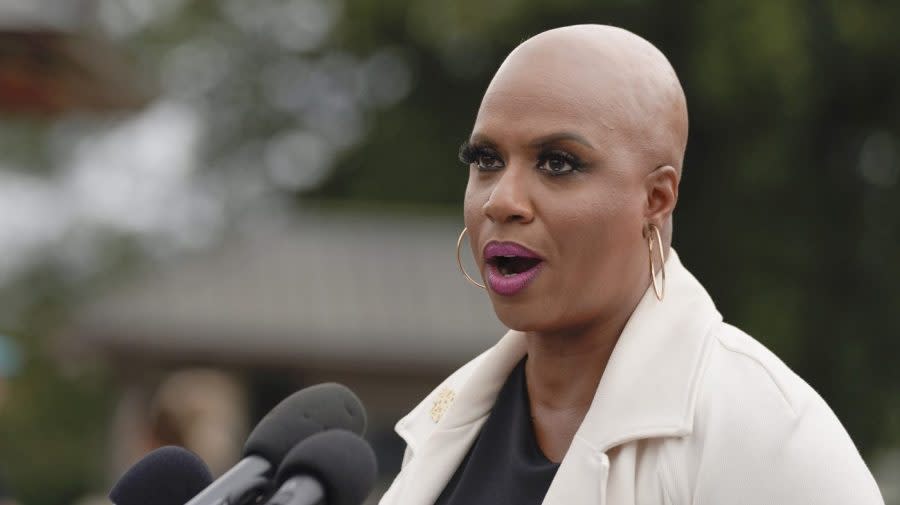Pressley introduces legislation to fight book bans

Rep. Ayanna Pressley (D-Mass.) has introduced a bill to address the rise in book bans in public schools and libraries.
Flanked by advocates at the Library of Congress on Thursday, Pressley explained the importance of the Books Save Lives Act. In addition to requiring public and school libraries to maintain a diverse assortment of books, the bill would also classify discriminatory book bans as violations of federal civil rights laws.
“The fight for books is a fight for intellectual freedom; a fight for education; a fight for democracy; a fight for justice,” Pressley said at a private roundtable.
Book bans have been on the rise in recent years. During the 2022-2023 school year, more than 3,000 books were banned — a 33 percent increase from the previous school year, according to the bill.
The effect has been chilling, with some educators leaving states where book bans are in place. Others have been threatened with job termination if they provide a banned book to a student. And authors have expressed frustration and disillusionment over their books being removed from libraries.
“These attacks rely on authoritarian tactics of fear, intimidation and silencing, straining and fostering mistrust in our public schools and undermining our schools’, educators’ and librarians’ ability to meet their goals of educating students with knowledge and critical thinking and facilitating the ongoing unification that undergirds a pluralistic society,” said Kasey Meehan, director for the Freedom to Read program at PEN America.
Book bans overwhelmingly apply to books that directly address issues of race and racism, have LGBTQ themes or have protagonists or prominent secondary characters of color or who identify as LGBTQ.
Katherine Oakley, senior director for legal policy at the Human Rights Campaign, said those proposing book bans have “very clear” intentions.
“They do not believe that LGBTQ people are something that is okay to talk about. They believe our very existence and the acknowledgement of our existence is obscene,” Oakley said.
Some of the most banned authors include Pulitzer Prize-winner Toni Morrison and Presidential Medal of Freedom recipient Maya Angelou.
Many of their writings have been repeatedly challenged and banned for mature content and their brutally honest depiction of slavery and racism — including the sexual assault on Black Americans because of slavery and racism.
But Pressley said books, such as Angelou’s “I Know Why the Caged Bird Sings,” save lives.
“As a child who endured a mere decade of childhood sexual abuse, it was not until I read that book as a young girl that I realized I was alone,” said Pressley. “Reflecting on the most challenging chapters of my life, I’ve recalled passages to make sense of it all and move forward. So yes. Books save lives.”
The Books Save Lives Act calls for trained librarians to be at primary and secondary public school libraries. It would also direct the Government Accountability Office to report the effect of book bans on underrepresented communities.
Pressley’s legislation is not the first bill to be introduced in an effort to counter book bans. In April, Rep. Raúl Grijalva (D-Ariz.) and Sen. Jack Reed (D-R.I.) introduced the Right to Read Act. Then, just this month, a coalition of Democrats including Rep. Maxwell Frost (D-Fla.) unveiled the Fight Book Ban Act, of which Pressley is a co-sponsor.
For the latest news, weather, sports, and streaming video, head to The Hill.


